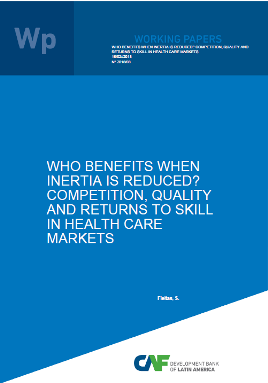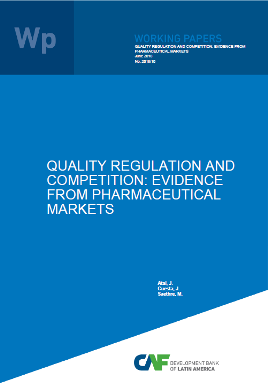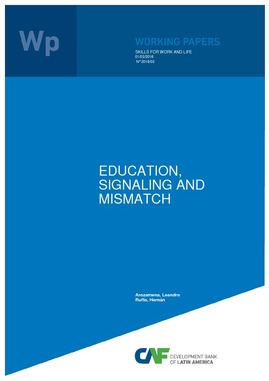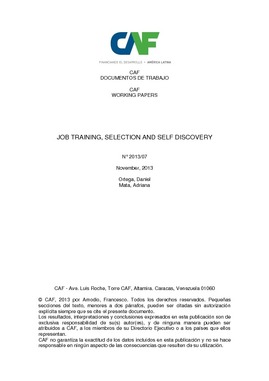Mostrar el registro sencillo del ítem
Who benefits when inertia is reduced? Competition, quality and returns to skill in health care markets
| dc.contributor.author | Fleitas, Sebastián | |
| dc.coverage.spatial | Uruguay | es_ES |
| dc.date.accessioned | 2018-02-28T12:48:38Z | |
| dc.date.available | 2018-02-28T12:48:38Z | |
| dc.date.issued | 2018 | |
| dc.identifier.citation | Fleitas, S. (2018). Who benefits when inertia is reduced? Competition, quality and returns to skill in health care markets. Documento de Trabajo;2018/08, Caracas: CAF. Retrieved from https://scioteca.caf.com/handle/123456789/1161 | en_GB |
| dc.identifier.uri | https://scioteca.caf.com/handle/123456789/1161 | |
| dc.description.tableofcontents | Increased competition may lead to incentives for firms to increase quality by incorporating higher quality inputs. This is particularly relevant in health care markets, since the supply of high quality physicians is relatively inelastic in the short run. Therefore, an increase in the relative demand for high-quality physicians could lead to an increase in their relative wages without increasing their total hours of work. Using a policy change in the Uruguayan health care system, I assess the effects of increased competition via lock-in reductions on a market for inputs. I leverage the facts that insurance companies, hospitals and physician services are completely vertically integrated in Uruguay and that in 2009 the government generated an exogenous change in the regulated mobility regime, increasing the competition in the market and providing incentives to increase quality. I combine administrative records on wages and hours of work in all hospitals for all specialists with data on the scores that specialists obtained in the test they must take to be admitted into the medical specialty graduate school, which I use as an exogenous measure of their quality. Consistent with the idea of an inelastic relative supply in the short run, I show that the increased competition shifted the relative demand for high-quality medical specialists, increasing the returns to skill. I do not find strong evidence of an increase in quality, approximated as relative hours of high-skill versus low-skill physicians | es_ES |
| dc.language.iso | en_US | es_ES |
| dc.publisher | CAF | es_ES |
| dc.relation.ispartofseries | Documento de Trabajo;2018/08 | |
| dc.rights | CC-BY-NC | es_ES |
| dc.rights.uri | http://creativecommons.org/licenses/by-nc/4.0/ | es_ES |
| dc.subject | Evaluación de impacto | es_ES |
| dc.subject | Salud | es_ES |
| dc.title | Who benefits when inertia is reduced? Competition, quality and returns to skill in health care markets | es_ES |
| dc.type | workingPaper | es_ES |
| dc.publisher.city | Caracas | es_ES |
Ficheros en el ítem
Este ítem aparece en la(s) siguiente(s) colección(ones)
-
6.1 Documentos de trabajo en investigación socioeconómica
En esta colección se encuentran los documentos de trabajo sobre temas económicos y sociales prioritarios para la región.






